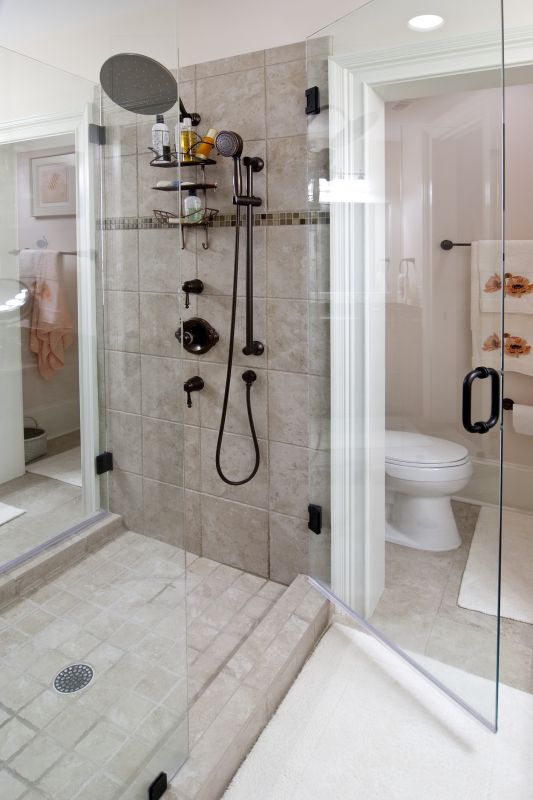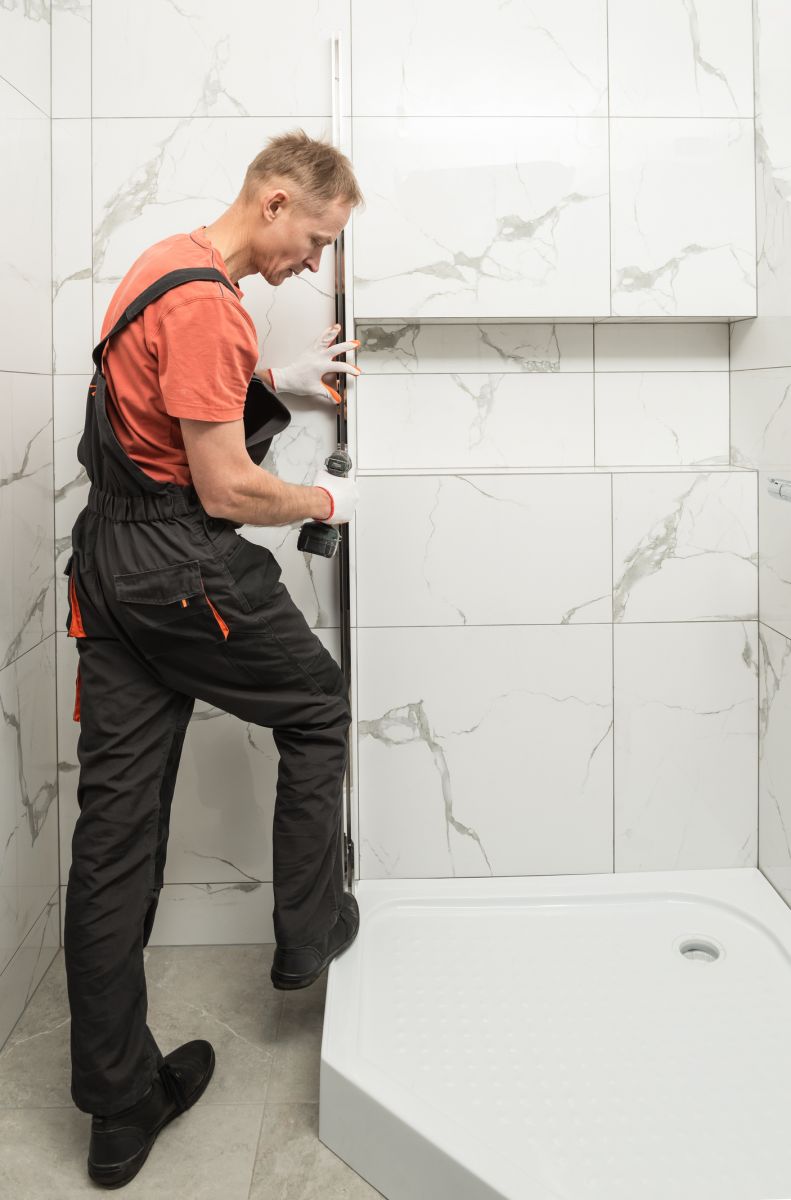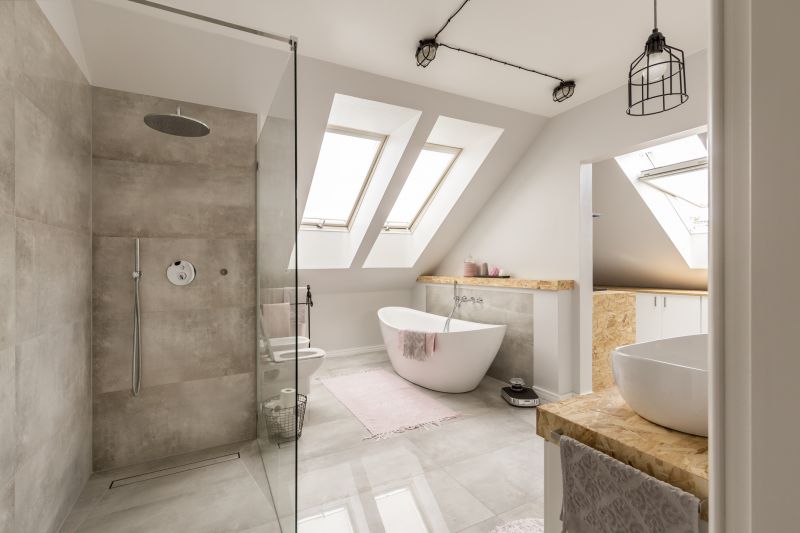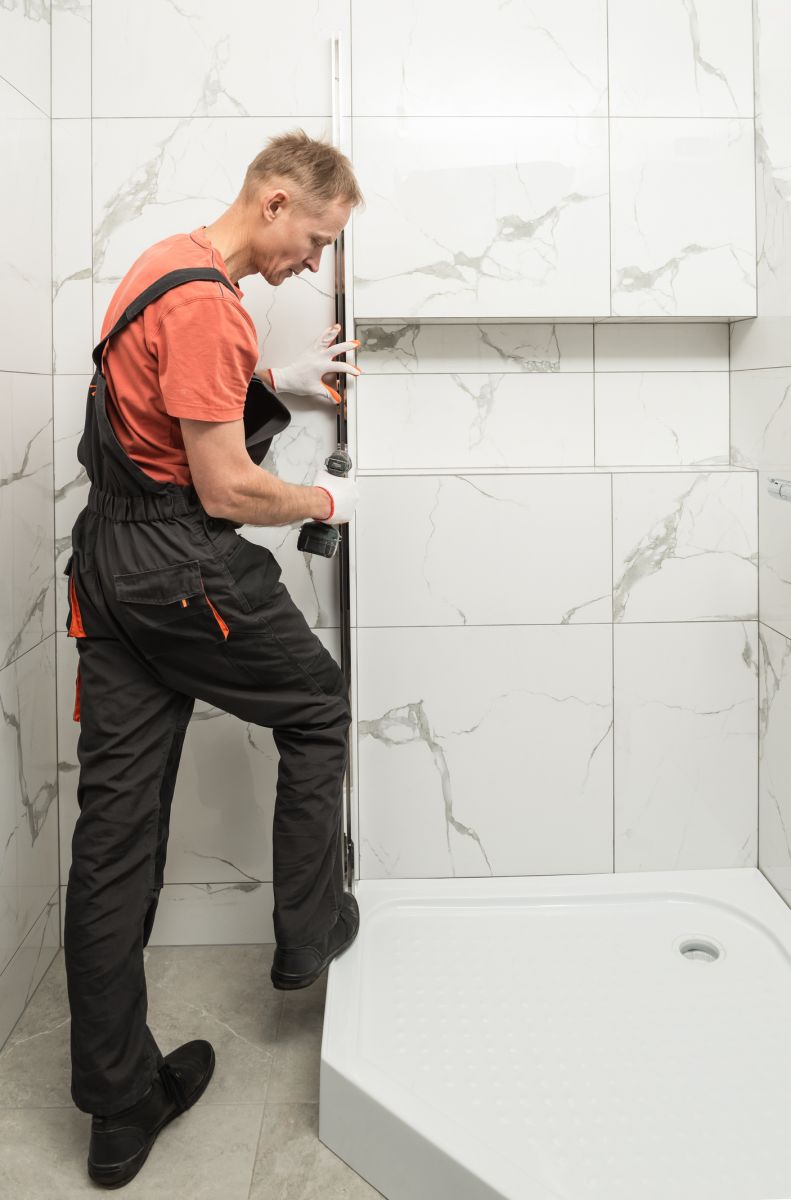Shower Base Installation
Welcome to Aberdeen Showers
Shower Base Installation

About Shower Base Installation
Shower base installation is a crucial aspect of bathroom remodeling that can significantly influence the overall look and functionality of a shower space. Homeowners considering this project should understand the various options and considerations involved to make informed decisions that best suit their needs and preferences.
One of the first decisions in shower base installation is choosing the right material. Common materials include acrylic, fiberglass, and tile. Each material offers distinct advantages; for instance, acrylic and fiberglass are known for their ease of maintenance and durability, while tile provides a more customizable and aesthetic appeal.
Another important consideration is the size and shape of the shower base. Homeowners must measure their available space accurately and choose a base that fits well within the bathroom's layout. Options range from standard rectangular bases to more unique shapes like neo-angle or corner designs, which can help maximize space in smaller bathrooms.
Drain location is a critical factor in shower base installation. The position of the drain in the base must align with the existing plumbing in the bathroom. Common drain locations include center, left, and right-hand drains. Ensuring proper alignment can prevent costly plumbing adjustments and ensure efficient water drainage.
Waterproofing is essential in any shower base installation to prevent water damage and mold growth. A waterproof membrane or liner should be installed beneath the shower base to provide a barrier against moisture. This step is vital for maintaining the integrity of both the shower and the surrounding bathroom structure.
Homeowners should also consider the type of shower door or enclosure that will accompany the shower base. Options include sliding doors, hinged doors, or even open designs with partial walls. The choice of enclosure can affect the overall aesthetic and functionality of the shower space.
Here are some factors to consider when selecting a shower base:
- Material: Choose between acrylic, fiberglass, or tile.
- Size: Ensure the base fits within the available space.
- Shape: Consider standard or unique shapes based on bathroom layout.
- Drain Location: Align with existing plumbing setup.
- Waterproofing: Install an effective moisture barrier.
Lastly, the installation process itself can vary based on the type of shower base and the existing bathroom infrastructure. It is important to follow manufacturer instructions closely to ensure proper installation and to avoid potential issues such as leaks or instability.
By understanding these key considerations, homeowners can make well-informed decisions that enhance the functionality and aesthetic appeal of their bathroom spaces. Selecting the right shower base and ensuring proper installation can lead to a satisfying and long-lasting bathroom upgrade.

Choosing the Right Shower Base Material
A guide to selecting the best material for durability and style.
When planning a bathroom renovation, selecting the appropriate shower base material is crucial for both functionality and aesthetics. Homeowners often face a variety of choices, each offering distinct advantages and characteristics. Understanding these options can help in making an informed decision that aligns with personal preferences and the overall design of the bathroom.
One popular choice for shower bases is acrylic. Known for its lightweight nature and ease of installation, acrylic is a favored option for many. It offers a smooth, non-porous surface that resists staining and is easy to clean. Additionally, acrylic shower bases are available in a range of colors and designs, making it easy to match them with different bathroom styles.
Ceramic and porcelain tiles are another option for those who prefer a more traditional look. These materials provide a classic appeal and can be customized with various patterns and colors. However, they require proper sealing to prevent water penetration and may involve more maintenance compared to other materials. The grout lines can also be prone to mold if not properly maintained.
Stone resin shower bases offer a luxurious feel and are known for their durability. Made from a blend of natural stone and resin, these bases provide a solid and sturdy surface. They come in various finishes, such as matte or glossy, and can mimic the appearance of natural stone without the associated maintenance challenges. Stone resin bases are also known for their excellent heat retention, providing a warm surface underfoot.
Fiberglass is another material option that is cost-effective and lightweight. It is easy to install and can be molded into various shapes and sizes, making it a versatile choice for custom bathroom designs. However, fiberglass may not be as durable as other materials and can be susceptible to scratches and fading over time.
For those seeking a more modern and sleek appearance, solid surface materials provide a seamless and contemporary look. These bases are made from a blend of acrylic and natural materials, offering a durable and non-porous surface. They are available in a wide array of colors and patterns, allowing homeowners to create a unique and personalized bathroom space.
- Acrylic: Lightweight and easy to clean
- Ceramic/Porcelain: Classic look with customizable options
- Stone Resin: Durable with excellent heat retention
- Fiberglass: Versatile and cost-effective
- Solid Surface: Seamless and modern appearance
Ultimately, the choice of shower base material will depend on individual preferences, budget, and the desired look of the bathroom. By considering the unique properties of each material, homeowners can select an option that not only enhances the visual appeal of their bathroom but also meets their functional needs.

DIY vs. Professional Shower Base Installation
Evaluating the benefits and challenges of doing it yourself versus hiring a professional.
When planning a bathroom renovation, one of the key decisions homeowners face is whether to tackle the shower base installation themselves or to enlist the help of a professional. Both approaches have their advantages and drawbacks, and the choice largely depends on one's skill level, budget, and the complexity of the project.
Opting to install a shower base independently can be a rewarding endeavor for those who enjoy hands-on projects. It offers the opportunity to learn new skills and take pride in a job well done. However, it is essential to be aware of the challenges that may arise. Precision is crucial in ensuring the shower base is level and watertight, as even minor misalignments can lead to water damage over time.
On the other hand, hiring a professional provides peace of mind that the installation will be executed with care and attention to detail. Professionals are familiar with the intricacies of shower base installation, which can minimize the risk of errors. They are also adept at navigating any unforeseen issues that may occur during the process, ensuring the project is completed efficiently.
One consideration is the time commitment involved in a self-installation. It requires thorough research and preparation, which can extend the timeline of the renovation. In contrast, professionals can often complete the task more quickly, allowing homeowners to enjoy their new bathroom sooner.
Another factor to consider is the potential for additional costs if mistakes are made during a DIY installation. Errors can lead to the need for repairs or replacements, which can ultimately increase the overall expense. Professionals, however, typically offer a level of assurance that the job will be done correctly the first time.
Before making a decision, it can be helpful to weigh the pros and cons of each approach. Here is a brief list to consider:
- Skill Level: Assess your own abilities and confidence in handling plumbing and construction tasks.
- Time: Consider how much time you can dedicate to the project.
- Budget: Evaluate the financial implications of both options.
- Complexity: Determine the complexity of the installation and whether it might require professional expertise.
Ultimately, the choice between self-installation and hiring a professional will depend on individual circumstances and priorities. By carefully considering the factors involved, homeowners can make an informed decision that aligns with their goals and resources.




